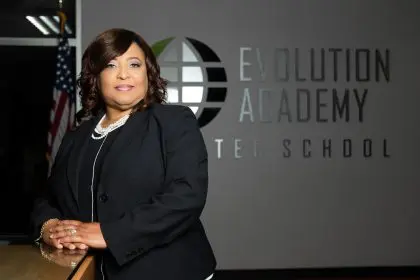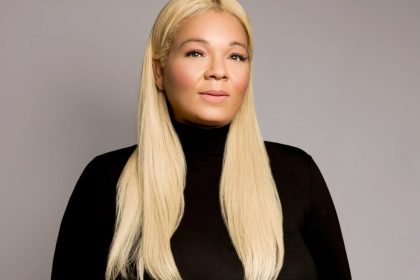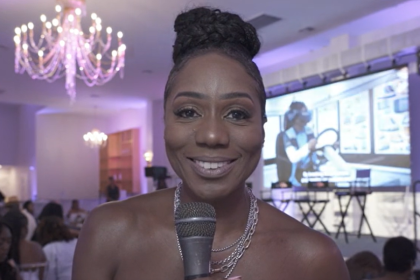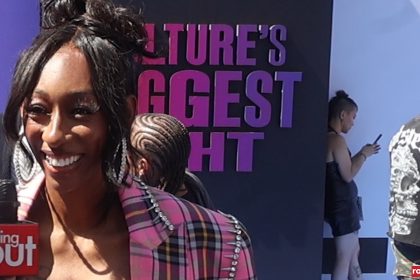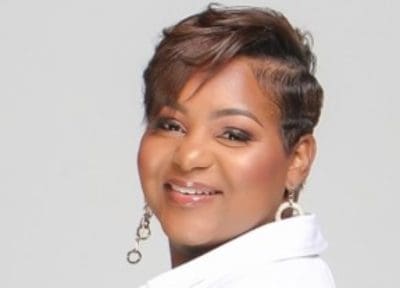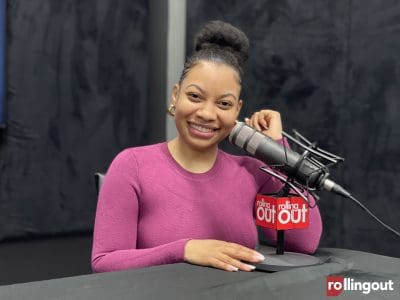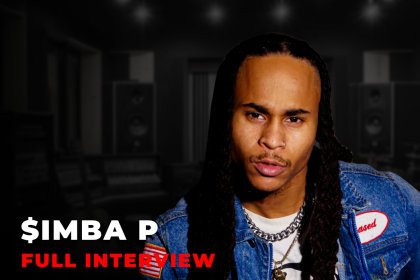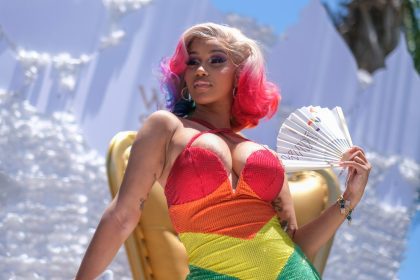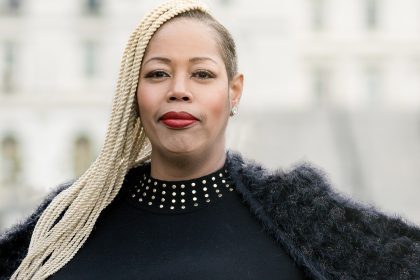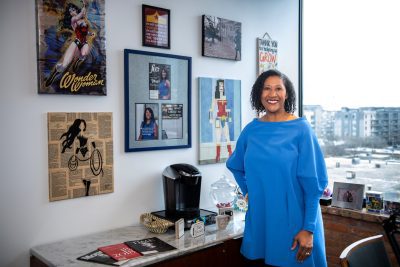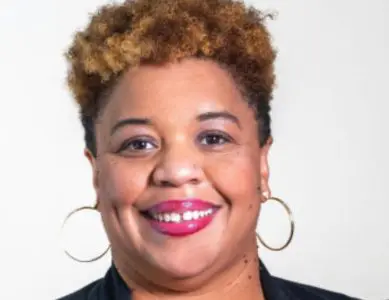Kim Williams, the chief marketing officer for Usher’s New Look, is a Strategic Visionary in Senior Marketing Leadership who brings over 25 years of diverse experience in Television Media, Management Consulting, and Advertising to her role as a Senior Marketing Executive. Renowned for her adeptness at crafting impactful communication and marketing campaigns, Kim is an expert in deeply resonating with target audiences to drive brand engagement and profitability.
Fueled by her inquisitive nature and penchant for unconventional marketing methods, Kim possesses a unique talent for uncovering fundamental consumer insights that yield tangible outcomes. Her track record includes successful brand launches and revivals across sectors such as CPG, B2B, B2C, retail, technology, and nonprofits, with collaborative partnerships with Fortune 500 executives amplifying brand presence.
Counting industry titans like Newell Rubbermaid, The Home Depot, The Coca-Cola Company, and Verizon among her distinguished clientele, Kim’s portfolio showcases her strategic prowess in brand development and partnership building. Beyond her corporate achievements, she’s a pioneering figure in tech education, co-founding Code Kids Rock to bridge the digital divide for minority youth.
Kim holds a master’s degree from Northwestern University’s esteemed Integrated Marketing Communications program and an undergraduate degree in broadcast communications from Ohio University.
Munson Steed: Hey, everybody! This is Munson Steed, and welcome to Sisters with Superpowers, where we introduce you to dynamic sisters that create these locations that are both beneficial to all those they serve. I am so proud to introduce you to the one, the only, ladies and gentlemen, with the standing ovation for her service and creating, and she’s gonna give us her title. But everything, my dear sister Kim Williams, how are you?
Kim Williams: Good. Thank you so much. I’m doing great. Thanks for having me.
MS: Share your title. I want you to say it as powerful. It really deals with philanthropy and innovation and a vision for what I consider both you and Usher Institution building for the next generation.
KW: I am the chief marketing officer for Usher‘s New Look.
MS: When you first heard about the job, and that you got the call, what didn’t you imagine you’d be doing that you’re doing today?
KW: Well, the job is, you know, I don’t believe in accidents. I do believe that. You know we are destined to do things and get to a certain place at the right time. I was burned out into my advertising role, working on a crazy client, working seven days a week, and I just felt like, you know what, there had to be a better way for me to be able to get back. And so, I left my role without another opportunity. I was just burned out, I said, “I need a break.”
And I was introduced to Careshia Moore, who, I know, you know, who is the President and CEO of Usher’s New Look. And so, I went in and just said, you know, I was introduced. We were introduced by a mutual friend and my friend said, “I think you need to do something that is impactful,” and so I said, I’m up for it. And so, I met Careshia, I went into the spark center over in midtown and was able to see some of the programming, and solved what they were doing with the young people, and I said at the time we were going into our 20th anniversary, and I said, I’ve never heard of Usher’s New Look. You need my help.
And so, she said, “Well, come on, and that’s literally how it all started for me, just realizing that you know what I could leverage my skills and experience to really, literally help to change lives of our young people.” So that’s how I got there. In terms of something that I didn’t think I’d be doing? I don’t know that that’s the case, because I don’t believe in, you know, this is my role, and this is what I do, and I don’t do these things. It’s literally a labor of love. I do a lot of things from a marketing perspective, but I also engage with our young people quite a bit. I’m involved with programming, and I volunteer quite a bit for additional things outside of just kind of our 9 to 5. So, it’s really been an exciting role for me, and it’s literally been life-changing for me as well.
MS: You talked about burnout, and we know that heart disease affects many women, particular black women number one killer of women. When you’ve got the signs that you needed a break, speak to those sisters who may not have the courage, but need to actually have it right now to use their sister power of saying, “No, enough.”
KW: Yeah. And you know what on top of the burnout, it’s not just about the job, right? I always talk to my mentees about, you know, be so much easier if we could just go in and do our work, just do our job. But there are all the other dynamics that come along, you know, with being a marketer or being an advertiser in a space where we’re typically not well represented. So, for me, a lot of it was the daily requirement to prove myself. I am a classically trained consumer insights executive from Northwestern University. If I show up with that degree, I don’t think you need to question my capabilities much more in terms of my ability to do the job. And even without that type of a degree, we are such dynamic people who are able to adapt in so many different environments. I just felt like, you know what I got tired of proving myself.
I got tired of being questioned about the work that I was doing. And why are you doing this? And why are you doing that? And so, I just felt like, “You know what? I know what I bring to the table. I’m confident about that. I want to be in environments that are welcoming to not only my ideas, but culturally open to different types of people with different ideas and diversity.”
And so, I think it’s also finding ways to be able to say, you know what I want to be in spaces that are welcoming to me but that are also challenging me to be able to do great work and make an impact on the industry. And so I say, you have to really have those discussions with yourself and not just be in a role that doesn’t serve you. What’s the point? And so, if you really want to be able to chase your dreams and live a life of passion and be able to walk into situations where you’re welcomed or your ideas are welcomed, and you can really be able to be creative. And you know there’s no limits to that, I think that that’s the goal for us like that’s what we have to be able to do. But we can only do that ourselves, nobody’s gonna give it to us.
The surprises that a marketing mentor gets
MS: I love that. Two things that your mentees have given you, that you were kind of surprised by. But it’s the benefit of actually mentoring.
KW: Yeah, there are a lot of young up-and-coming marketers, and they will literally reach out to you. So now we, you know, back in my day we didn’t have the technology, we didn’t have LinkedIn, you were just literally let working by word of mouth, and who knew who. And now these young people will literally reach out to you on LinkedIn and email you and say, “Hey, I just want to be able to talk to someone like, how did you know where you wanted to be? And what do you think that I should be doing next?” I welcome all of those types of calls and emails.
And I schedule calls, and I talk to them all the time, and we’re on text messages, and they’re asking me, “Hey, can you look at my rèsumè, I’m ready to make a change,” and I’m giving them kind of ideas around growth and opportunities for that. And so, what I find with them is they’re not afraid, you know. They’re not afraid to ask for the help they’re not afraid to be able to, you know, find ways to be strategic about their next steps, and really just be able to be more informed as they make their career choices.
For us, I felt like it was more so, our parents were just like, “Get a good job,” you go to work every day, and you know you retire. And so, you know, I think that they’re really trying to understand how they can make the most impact in the world. And so that really fuels me, it gives me, you know a lot of encouragement as well.
MS: You know, let’s look at the relationship. Chief marketing officer for a foundation, an artist, a professional artist. Let me say it that way. It’s a very different. So, you want to be an artist, but showing up being on time in a legacy already obviously, bringing on the biggest stage. And still, you’re asking IBM to participate in a vision. Can you share a couple of case studies on, you know, talking and sharing what IBM and Usher and you clearly, Miss Williams, would be asking them to do?
KW: Yeah, and let me just pay homage to who we call “Big Brother Almighty.” That’s his code name at Usher’s New Look. Usher is an amazing person. He’s so dedicated to the cause and shows up when we when we call upon him. So, we just want to be able to give him his flowers. But with us we have, you know, so double-edged sword, right in terms of a celebrity-driven philanthropy brand versus a non-celebrity brand, right? Because sometimes we get the well, “You already have money, so what do you need our money for?”
He’s an artist, he, you know he has wealth, right. But then on the flip side, that’s just not how it works. And so, we are able to, really, you know, since I’ve been there, Careshia and I have really done a great job of looking at opportunities based on our youth needs, right? That’s why we’re there. We’re there to serve our young people, and we don’t want them to be left behind, so the IBM partnership, you know, I really want to give a lot of kudos to Careshia on that, because she has been a visionary leader during her 10 years as president with UNL. And has really been able to kind of find some great ways to partner with the corporate community.
We just had a partnership with truest for financial literacy. And so IBM, they participated in our youth summit, which hopefully, you’ll be able to come this year, Munson, into the Disruptivator Summit, and this year it’s in July. So, we’ll be talking about that later. But it’s the biggest youth summit in the southeast, and so IBM was one of our excursions for our youth last year, and so the relationship started there, and it evolved into this new world of AI. And we felt like this is the time to be able to leverage those resources, to help our youth be able to not be left behind in this technology age. And we know there’s still a lot of disparity., there’s a huge gap, we talk about that all the time. But you have to still do something right? We could talk about the problems. But this partnership really allowed us to be actionable.
IBM is a great partnership. They have a great technology tool that we’ll be able to leverage not only for our youth, but we’ll be able to build some additional partnerships across organizations. And so, I just think that leveraging Usher’s brand, especially where we are now, there are a lot of opportunities for us to be able to make those kind of impactful partnerships for our young people.
Tips for those on the outside looking in
MS: When you think about that as a marketer, and you’re building this new case, study. What would you say to those other foundations who don’t necessarily have the keys? What should they have in their arsenal as other foundations? And you and I both noted tons of young, black and older black foundations that really need to maybe sharpen their tools as they know they’re going in. You talked about insights.
How would you suggest this couple of tips that they began to walk in a door, not necessarily, IBM, but somebody in their local market to say, here’s what we do. What is the IBM looking for to really validate what you’re doing?
KW: Yeah. And that’s a great point. I think that obviously, being in a nonprofit world, people think, “Oh, it’s just easy to start a nonprofit,” you know. I mean if you, you know, if you can stick to it, you can do it, I mean, but at the same time, in order to make it successful, you have to have those checks and balances in place from organization standpoint. But you also, even though you know you don’t have a lot of resources, right? You can’t just walk into an idea and say, “Oh, that would never work. We don’t have the resources to do XYZ.” You literally have to be able to be a dreamer.
Like we dream up opportunities, and we’re looking at our youth to really understand where they are. What do they need? You know, what are some of the emerging kinds of skills that they need to be able to be competitive. So, we are a mentoring program, and we start with our young people from eighth grade all the way through college, and then we still work with alumni who are still trying to navigate their way through the world. …
When we started in 2019 on this journey, when I was involved. You know, we realized, I realized, you know, everybody calls and says, “Oh, we want Usher just to show up here, we want him to show up there,” but that’s not reality, you know? He has a business that he has to run. And so, I said, “You know what? Let’s just build the brand based on the work that we’re doing, we are doing amazing work. So, if we focus on that and we do the storytelling, and we really just kind of keep our heads down and keep talking about what we’re doing and the impact that we’re making everything else will come.”
And so, 5 years later, I’m really excited to share that, you know, we have been able to build some really great partnerships, because the proof is there, like we have the stats, we work with a PhD, you know, to measure everything we’re doing and be able to show the impact for that. And then I’m able to take that. And I’m able to leverage that when we’re talking about partnerships and we’re talking about media opportunities to be able to raise the visibility.
And so, it’s really more so just what are you trying to do? What is the impact that you’re trying to make? And then that’s where the storytelling and all the brand building and things like that come from, from being able to show and prove that you can make an impact.
Why hold conferences for the next generation?
MS: So, you talk about a huge event, it happens annually. Why host conferences for young people? What have you learned? What have been the insights coming out of the fact that this disruption really sells them in on seeing themselves differently?
KW: Yeah, I mean, I’m gonna give you the emotion. I’m gonna talk about my insight from my emotions, when I’m in that room every year. There are very few places where young, black and brown children can, or youth, we call them, can be celebrated, and where they can just come into a room, they can be part of a community of people that look like themselves and celebrate each other.
And so, the one thing that happens each and every year is that we notice these young people come, and you know, and we’ve grown it pretty significantly over the past five years. And these people. So, we went from first 100, we’re like, are we gonna sell 100, you know, sell out to 100. And now we’re up to 500 this year, so it has just grown year after year, and what we’ve seen is most of them don’t know each other. They’ve never met each other, but they’re so supportive. And so, we have one of the segments we call the spark, you know, kind of the Spark entertainment section, where they can just kind of take a break.
They can volunteer to get up on the stage and kind of do their, you know, do a poem or somebody might sing, or they might just kind of talk about themselves and introduce themselves. And what I’ve seen is, every year some of the people who are the most shy they get up there, and they’re like, “I’m sorry I’m shy, I’m not used to being on the stage,” and the audience goes wild, and they’ll say you can do it, you got this. It is magical.
And so, you know, we realized that there are very few spaces for black joy, especially for our young people, and we want to be able to give them opportunities to see that you are valued, you are important. And so we’ve aligned, you know, the opportunity to have a summit every year with, you know the companies that come to do the excursions. And so we have, you know, panel discussions with some of the top leaders and the spaces you’ve developed, but also just motivational speakers and people that come and just kind of talk to them about their journey.
And some of them aren’t perfect journeys some of them are talking about with the lessons that they’ve learned, and you know all those things. And then we have the Disruptivator Ball, and that’s the fun part. So, you know, my first year you had Jermaine Dupri on the, you know, spinning and Usher usually comes every year, I think two years ago he wasn’t there. That was one of the only years he was missing because he was on tour. But last year he came and just kind of he literally feeds into. You know the youth what we what we call the sermon every year, just giving them the truth. Nuggets about life, and, you know, inspiring them. So, it’s really just a love fest for high school youth every single year, and it’s the most magical thing that you’ll ever see.
MS: I love that. When you think of the word transformation, which is what you’re doing, how do you market that out? that you are transforming a youth vision of themselves?
KW: You know, I feel like, it’s almost like transformation is one of those things you can’t necessarily see in the most, you know, visual way. I think that transformation can mean a lot of different things. So, what we’ve really focused on is trying to really show youth led visuals, and how we allow them to be able to talk about themselves, about how we let them have leadership roles. So, we have a youth council for the summit. And they’re basically working with me on marketing, you know, to be able to make sure that they gave input into the concept. So, I have a designer that I work with. She came up with the concepts based on them. Coming up with a theme we gave them the concepts to choose from, so that they feel like this is their space. This is what they have ownership of.
And so hopefully, that’s reflecting in the work that we’re doing from our storytelling, from social media and everything else that we’re doing, that is, youth led. And so if you ever took a look at any of the Super bowl, you know things that we were doing, tt was a lot of fun. Because the young people were doing their you know, what’s Usher are gonna perform, you know, during Super Bowl, and, you know, doing the Tiktoks, and they want to do a commercial their own, you know, commercial. So we say, take that ad age commercial, you know, to congratulate Usher, but it also was very informative about what UNL does. And so, you know, we really work very hard to let them have a lot of input into the organization and how we reflect ourselves out into the world. And so I think, from a transformative perspective. You know, I think, that we you know what I say all the time is we should be leading anything as it relates to youth. Right? When there’s things going on with youth.
So as a result of that, we created what I call what I call the disruptive 8 series, New York just hosted one about mental health a month ago, because there are just a lot of challenges with our young people with mental health, so Chase sponsored that. Here in Atlanta, we’re talking about DEI and so I think we’re gonna have some more conversations about, you know, this AI upscaling thing that we’re doing with IBM. But I wanna dig into more like, what does that really look like, though, like we talk about the shiny, you know, this is a great opportunity. But at the end of the day, I know there’s still young people walking around here without computers, without, you know, technology, without basic tools. There are a lot of people here in Atlanta that don’t have the Internet.
Let’s talk about that. Because, okay, yeah, we could come up with all these great programs. But let’s get to the root causes and really be able to figure out, how do we make the impact that we need? And so for me, that’s transformative. It’s literally making a change and making sure that we really get to the reality of what’s really happened, and not just the shiny objects.
What’s the challenge?
MS: I love that so. Lastly, if you were given a speech to youth at Spelman, or FAMU, or Howard, what would you challenge them to do? As it relates to serving their community and marketing to our community?
KW: Yeah, I you know, one big thing for me is mentorship is huge. I believe in it strongly, because every opportunity that I’ve ever had. I’ve had a mentor that looked like me. And I feel like, you know, as we continue to evolve as people, and we continue to get into higher places. That’s amazing. But if that each one teach one and reaching back is still relevant to me today, I do believe that our younger people are more community focused than ever. I think that they’re more true speakers, they’re not afraid to speak their minds like.
I feel like we were told to be politically correct, and don’t rock the boat, just kind of be able to find ways to make an impact, but without kind of tipping the whole boat over. I think they’re going to tip this whole boat over, and I think that we need that. I mean, we’re watching what’s happening with DEI around the country, and that is a very real threat to us. And but I also am very, I have a strong belief in our people, you know, we’ve overcome a lot, and we’re still here, and we’re still thriving, and we’re still in in places that no one ever thought we’d be. And so I have a lot of faith in us, but I also believe that the young people, you know, get the skill sets that you need, you know.
I always tell my young people who say they’re coming out of college, and they say I want to start my own business. I think that’s amazing, but I want you to go work in a corporation for a while, so you can understand the dynamics of you know, office politics, you can understand like decorum. You can also understand, like, what do you need to do to be able to work hard and be able to get your first performance review and understand like, how do you continue to raise the bar with your career and your skill set? And then, you know, once you understand those dynamics, then you can figure out, okay, how do you go out into the world as you, and also save up some of that money? And you know, take that big consultant role and get your bonuses and stack up and figure out how do you leverage that in a way.
So that’s literally a lot of the advice advice that I’ve been giving to some of my mentees lately, you know, is just like, get the baseline, build the foundation, and then go out into the world and show up as you, and then you’re gonna be powerhouse. So that would be my main advice for these young next generation of of young marketers coming into the world with a level of creativity, I think that you know the world is ready to see what what we have coming.
MS: Great. Well, ladies and gentlemen, I’d like to thank Kim Williams for coming on to Sister with Superpowers. Kim, thank you for all you do to continue to serve our community and make a difference in how we see ourselves, in how our future generations will be able to be encouraged and know that they’re loved, and they have a big destiny and a purpose each and every day. I’m Munson Steed and this has been Munson Steed Sisters with Superpowers and Kim Williams. Thank you so much.
KW: Thank you.

